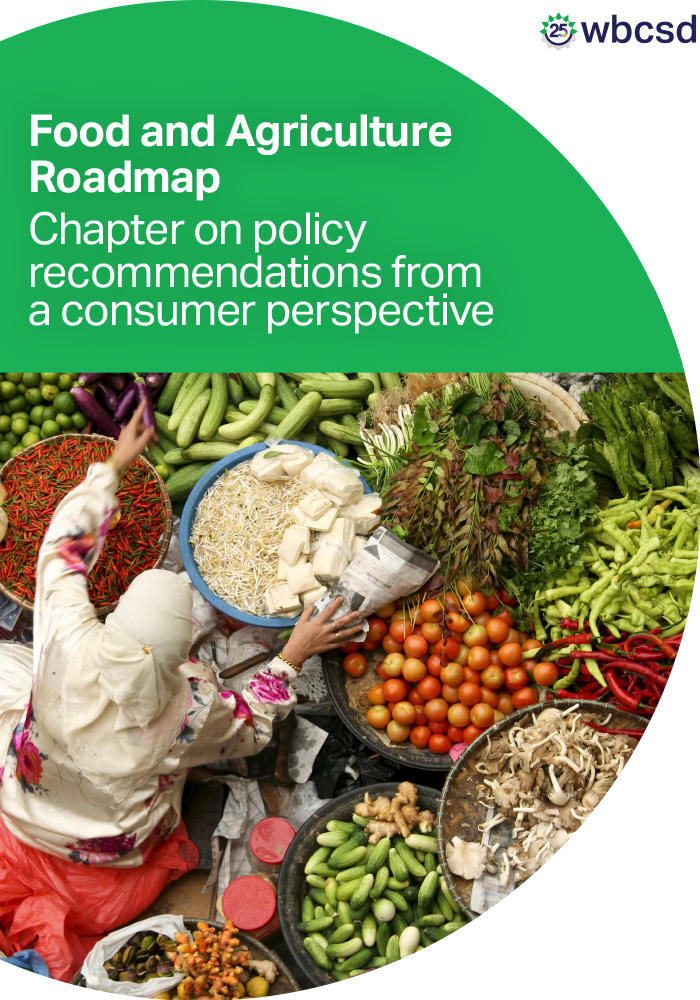
The Food and Agriculture Roadmap serves as the implementation plan for WBCSD’s CEO Guide to Food System Transformation by setting out the overarching transformational targets, key action areas and business-led solutions required to achieve environmental sustainability, equitable livelihoods, and healthy and sustainable diets for all.
It builds on the body of work developed by WBCSD’s Food Reform for Sustainability and Health (FReSH), Scaling Positive Agriculture (SPA) and Global Agribusiness Alliance (GAA) projects.
The private sector is responsible for almost all the food produced, sold and consumed globally. Therefore, businesses have a central role to play in improving food production and consumption patterns worldwide. The Food and Agriculture Roadmap calls on companies to work actively to address the issues of healthy and environmentally sustainable production and consumption by delivering integrated solutions to transform food systems.
What it is about:
This chapter on Policy consolidates the output of the Science-to-Policy Dialogues (please find the summary outcomes here), which brought together academia, business and civil society to co-construct policy recommendations for food systems transformation. While the first part of the chapter is framed through a consumer lens, identifying policies that can be implemented to foster dietary shifts towards healthy and sustainable consumption patterns, the second part of the chapter will focus on production and will be launched in 2021.
Key findings:
Through an iterative research and consultative process with WBCSD members, academia and civil society, we put forward three clear policy asks from a consumer perspective:
- Establish global guidelines, supported by national standards and incentives, to standardize healthy and sustainable diets and build consumer trust
- Create an enabling environment to educate consumers on healthy and sustainable choices, and ensure responsible marketing practices and advertising to normalize consumption of a healthy and sustainable diet
- Commit to embedding health and sustainability requirements within public procurement
In addition,this chapter also sets out key enablers which will support the realization of these policies, as identified by businesses. These enablers include:
- Coordinate policies and actions
- Leverage data and technology to increase transparency
- Invest in improving infrastructure

